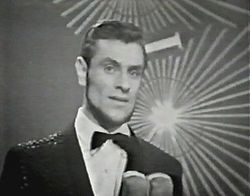You can help expand this article with text translated from the corresponding article in Finnish. (June 2023)Click [show] for important translation instructions.
|
| Finland in the Eurovision Song Contest | |
|---|---|
| Eurovision Song Contest | |
 | |
| Participating broadcaster | Yleisradio (Yle) |
| Participation summary | |
| Appearances | 58 (50 finals) |
| First appearance | 1961 |
| Highest placement | 1st: 2006 |
| Host | 2007 |
Participation history | |
| Related articles | |
| Uuden Musiikin Kilpailu | |
| External links | |
| Yle Eurovision page | |
| Finland's page at Eurovision.tv | |
| Finland in the Eurovision Song Contest 2026 | |
Finland has been represented at the Eurovision Song Contest 58 times since its debut in 1961. The Finnish participating broadcaster in the contest is Yleisradio (Yle), which has often selected its entrant with a national final, since 2012 known as Uuden Musiikin Kilpailu . The country won the contest for the first –and to date only –time in 2006 with "Hard Rock Hallelujah" performed by Lordi. The country's best result before then was achieved with "Tom Tom Tom" by Marion Rung in 1973, which placed sixth.
Contents
- History
- Participation overview
- Hostings
- Awards
- Marcel Bezençon Awards
- You're a Vision Award
- Related involvement
- Conductors
- Commentators and spokespersons
- Photo gallery
- Notes
- References
Finland has finished last in the contest eleven times, receiving nul points in 1963, 1965, and 1982. Since the introduction of the semi-finals in 2004, Finland has failed to reach the final eight times. In 2014, the country had its best result in eight years with "Something Better" by Softengine finishing 11th, a result that would be surpassed with "Dark Side" by Blind Channel, which came sixth in 2021, and later with "Cha Cha Cha" by Käärijä, which won the public vote and came second overall in 2023, the latter of which is Finland's second best result to date.





















